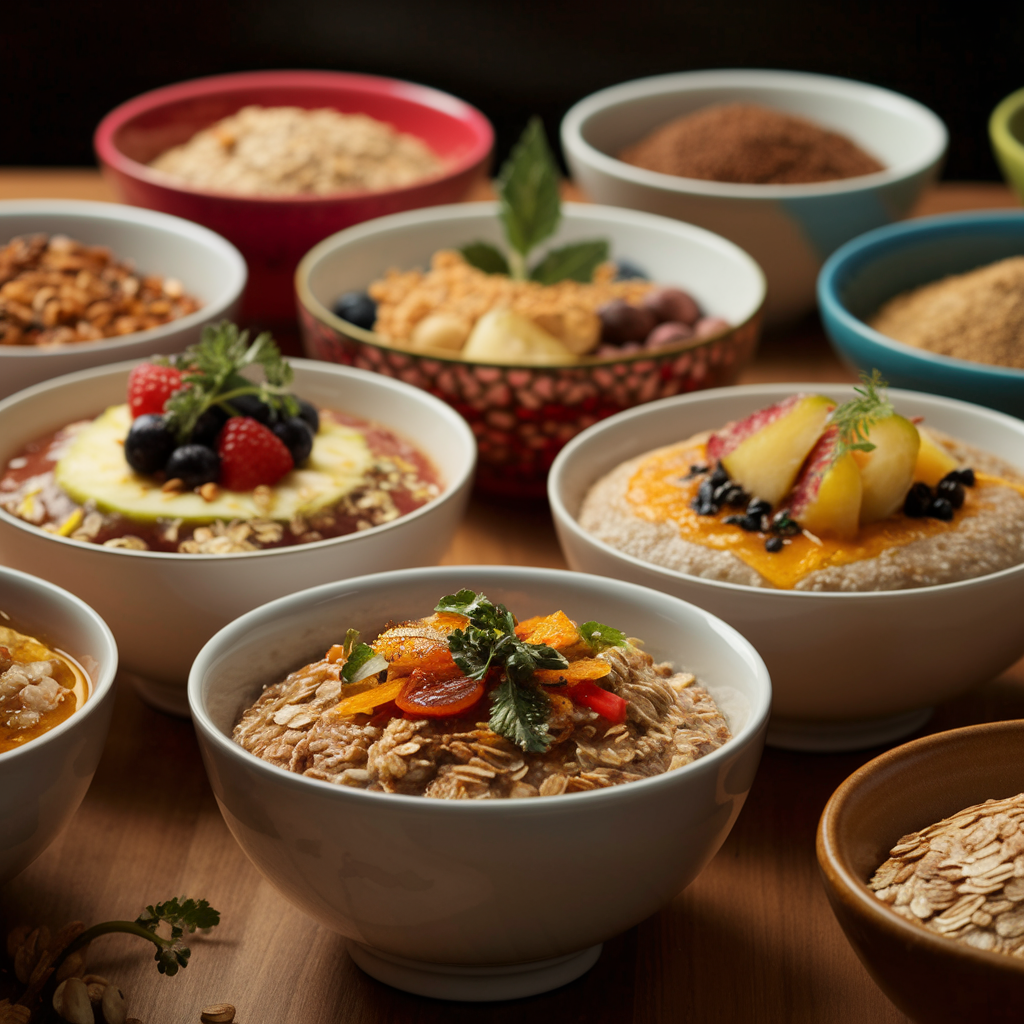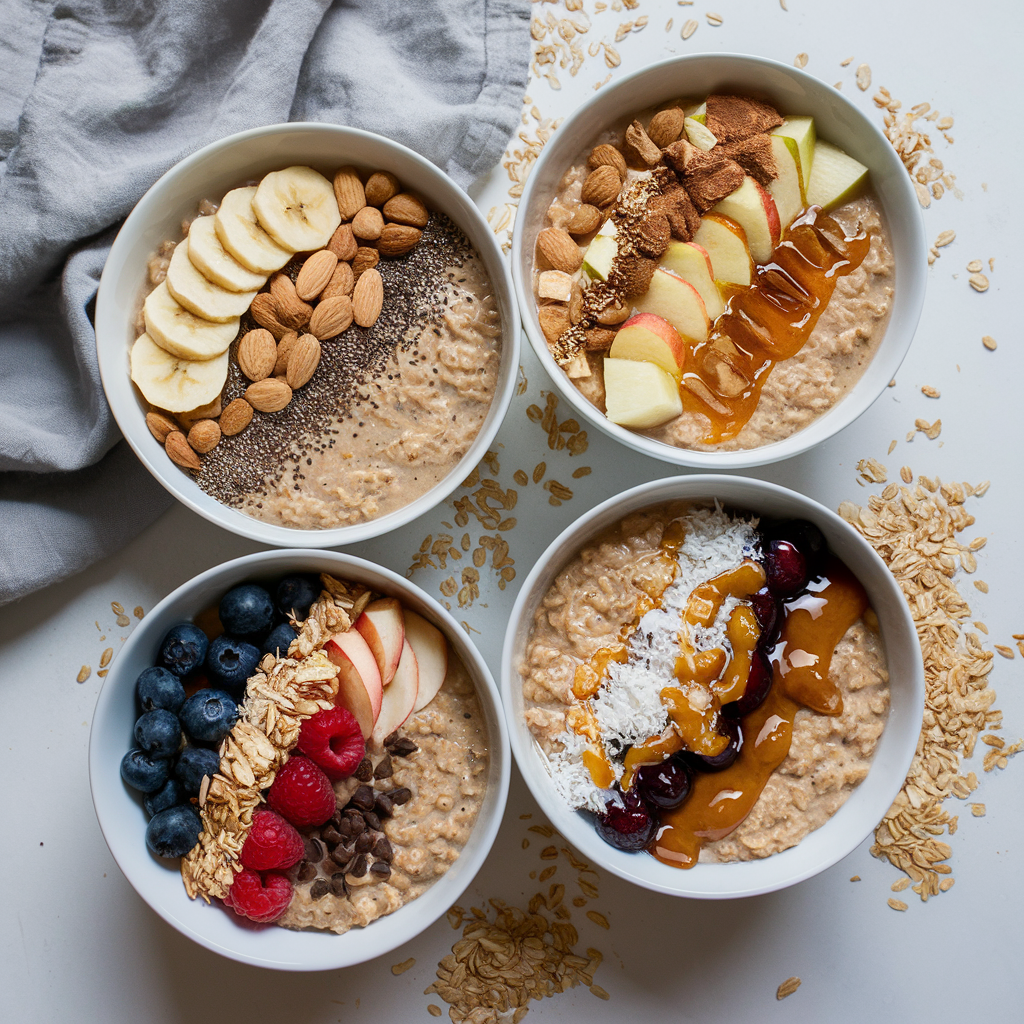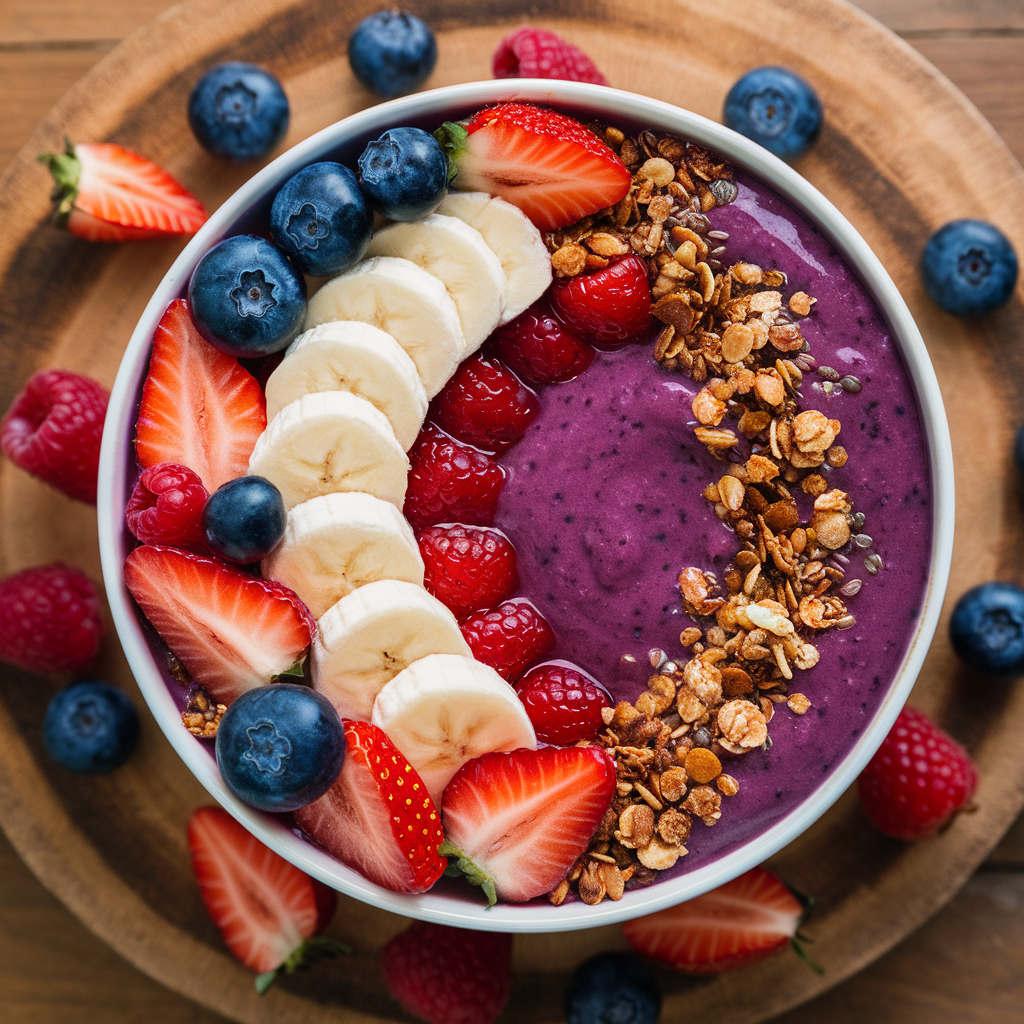
In the realm of breakfast foods, oats have long held a reputation as a wholesome and versatile option. Among them, Jungle Oats stands out as a household name, praised for its simplicity and nutrient-packed profile. But is eating Jungle Oats every day truly healthy? While many hail it as a superfood, some wonder about potential drawbacks or whether variety is better for overall health.
This article explores whether making Jungle Oats a daily staple is a wise choice. We’ll delve into its nutritional content, health benefits, potential risks, and how to incorporate it into a balanced diet. By the end, you’ll have all the facts you need to determine if a daily bowl of Jungle Oats fits into your lifestyle and dietary goals.
Table of Contents
What Are Jungle Oats?
The Origin and History of Jungle Oats
Jungle Oats is a well-loved breakfast choice that has been around since 1920. It first became popular in South Africa, where families enjoyed it as a healthy and affordable meal. Unlike many modern breakfast foods, Jungle Oats has stayed simple and natural. It is made using traditional methods, which keep the product wholesome and free from unnecessary additives.
The Nutritional Profile of Jungle Oats
A single serving of Jungle Oats is packed with important nutrients that support good health. For example:
- Carbohydrates: Each serving contains 27 grams of complex carbs. These carbs give you steady energy and help you stay full longer.
- Fiber: Jungle Oats has about 4 grams of fiber, including beta-glucan. This type of fiber can help lower cholesterol and improve digestion.
- Protein: With around 5 grams of protein per serving, Jungle Oats supports muscle repair and keeps you feeling full.
- Fats: Low in fat, with just 3 grams per serving, most of these fats are good for your heart.
- Vitamins and Minerals: Jungle Oats also provides iron, magnesium, zinc, and vitamin B1, which are important for energy and a strong immune system.
Because of this nutrient-rich profile, Jungle Oats is a great choice for anyone looking for a healthy start to their day.
Types of Oats: Instant vs. Rolled Oats
It is helpful to know the difference between rolled oats and instant oats. Jungle Oats uses rolled oats, which are whole grains that are steamed and flattened. This process helps them keep their natural nutrients and fiber, making them a healthier option.
Instant oats, on the other hand, are precooked and cut into smaller pieces. While they are quick to prepare, they often lose some of their fiber and other nutrients. In addition, flavored instant oats usually contain added sugars and other unhealthy ingredients. Jungle Oats focuses on providing rolled oats, which offer more nutrition and fewer additives.
The Nutritional Benefits of Eating Jungle Oats Every Day
Packed with Energy for the Day
Jungle Oats is an excellent source of complex carbohydrates, which are essential for providing steady and long-lasting energy. Unlike simple carbs found in sugary cereals, the carbs in Jungle Oats digest slowly. This helps maintain stable blood sugar levels, preventing energy crashes during the day. Starting your morning with a bowl of Jungle Oats can keep you focused and energized, whether you’re heading to work, school, or the gym.
Supports Heart Health
One of the standout nutrients in Jungle Oats is beta-glucan, a soluble fiber that plays a vital role in maintaining heart health. Studies have shown that beta-glucan can lower LDL cholesterol (commonly called “bad cholesterol”) by binding to it and helping your body remove it naturally. Eating oats daily as part of a balanced diet can reduce the risk of heart disease over time. Moreover, Jungle Oats contains healthy unsaturated fats that further promote cardiovascular health by supporting good cholesterol levels.
Helps with Digestion
The high fiber content in Jungle Oats also supports good digestion. Fiber adds bulk to your stool, making it easier for your body to process waste and prevent constipation. Additionally, fiber feeds the “good bacteria” in your gut, promoting a healthier digestive system overall. For people with occasional stomach issues, adding a bowl of Jungle Oats to their daily routine may lead to noticeable improvements.
Aids in Weight Management
Jungle Oats can help with weight control in several ways. Its high fiber content keeps you feeling full for longer, reducing the likelihood of snacking on unhealthy foods between meals. Furthermore, the protein in Jungle Oats helps satisfy your hunger and supports muscle repair, especially if you’re physically active. When combined with fruits, nuts, or seeds, a serving of Jungle Oats becomes a balanced and filling meal that supports your weight loss or maintenance goals.
Boosts Immunity
Jungle Oats is rich in key nutrients that help strengthen the immune system. For example, iron is essential for producing red blood cells, which carry oxygen throughout your body. A lack of iron can lead to fatigue and a weakened immune response. Similarly, zinc supports your body’s ability to fight off infections, while vitamin B1 helps your cells produce energy efficiently. By eating Jungle Oats every day, you can give your immune system the nutrients it needs to function at its best.
Helps Manage Blood Sugar Levels
For people who need to monitor their blood sugar levels, Jungle Oats is a great option. The complex carbs and fiber in oats slow down the absorption of sugar into the bloodstream, which helps prevent spikes and crashes. This makes Jungle Oats a particularly good choice for individuals with diabetes or those aiming to reduce their risk of developing the condition.
Contains Antioxidants
Oats are also a source of avenanthramides, a group of antioxidants found almost exclusively in oats. These compounds reduce inflammation and improve blood flow by relaxing blood vessels. Antioxidants play an important role in protecting your body from free radical damage, which can contribute to aging and chronic diseases.
Potential Risks of Eating Jungle Oats Daily
Overeating and Caloric Intake

Although Jungle Oats is a healthy food, eating too much of it can lead to consuming more calories than your body needs. For individuals aiming to manage their weight, portion control is essential. A typical serving of oats is about 40 grams (1/2 cup), but adding large amounts of toppings like sugar, honey, or high-calorie nuts can quickly turn a healthy meal into a high-calorie one. To avoid this, it’s important to stick to recommended portions and choose toppings wisely.
Digestive Issues from Excessive Fiber
While fiber is crucial for good digestion, eating too much of it, especially if your body isn’t used to a high-fiber diet, can cause bloating, gas, or stomach discomfort. Jungle Oats provides a good amount of fiber, but when consumed in excess or paired with other high-fiber foods, it may overwhelm your digestive system. If you’re new to eating oats daily, it’s best to start with smaller portions and increase gradually to let your body adjust.
Gluten Contamination Concerns
Although oats are naturally gluten-free, they are often processed in facilities that also handle wheat, barley, or rye. This cross-contamination can make Jungle Oats unsafe for people with celiac disease or gluten sensitivity. For those who need to avoid gluten completely, it’s important to check for certified gluten-free oats or speak with a healthcare professional before including them in your diet.
Allergies and Intolerances
Oats are generally well-tolerated, but some people might experience allergic reactions. Symptoms can range from mild itching and rashes to more severe reactions like difficulty breathing. Additionally, a small percentage of the population has trouble digesting avenin, a protein in oats that may cause discomfort similar to gluten sensitivity. If you experience any unusual symptoms after eating oats, consider consulting a doctor.
Monotony in Diet
Eating Jungle Oats every day without incorporating variety can lead to dietary monotony. While Jungle Oats is nutritious, relying on it as your sole breakfast option might mean missing out on other essential nutrients found in different foods. For example, eggs, yogurt, or whole-grain bread provide unique nutrients that complement oats. A well-rounded diet that includes various food groups ensures your body gets all the nutrients it needs for optimal health.
Overloading on Sweeteners
To enhance the taste of oats, many people add sugar, flavored syrups, or sweetened fruit, which can counteract the health benefits. High sugar intake increases the risk of weight gain, diabetes, and other health issues. If you eat Jungle Oats daily, it’s crucial to flavor them with healthy toppings like fresh fruit, cinnamon, or unsweetened nut butter instead of processed sweeteners.
Misunderstanding Serving Sizes
A common mistake when eating Jungle Oats is misjudging portion sizes, especially when preparing them from scratch. Unlike pre-portioned instant oats, rolled oats require measuring, and many people unintentionally over-serve themselves. This can lead to consuming more calories, carbs, and fiber than intended. Sticking to the recommended serving size is key to enjoying the benefits without the risks.
Balancing Benefits and Risks
While Jungle Oats is packed with nutrients, overconsumption or improper preparation can lead to minor risks. By paying attention to portion sizes, avoiding excessive sweeteners, and maintaining variety in your diet, you can enjoy the health benefits of Jungle Oats without the downsides.
How to Maximize the Benefits of Jungle Oats
Start with the Right Preparation
The way you prepare Jungle Oats can make a big difference in how healthy your meal turns out. For example, cooking oats with water or unsweetened plant-based milk keeps the calorie count low and ensures a simple base. Avoid using whole milk if you’re trying to reduce fat intake, but feel free to add it for extra creaminess if your goal is to gain weight. Opt for stovetop or microwave preparation to preserve the natural texture and flavor of rolled oats.
Add Nutrient-Rich Toppings
To make Jungle Oats a complete and balanced meal, you can pair them with a variety of healthy toppings:
- Fruits: Add fresh fruits like bananas, berries, apples, or mangoes for a natural sweetness and a boost of vitamins and antioxidants.
- Nuts and Seeds: Incorporate almonds, walnuts, chia seeds, or flaxseeds to add protein, healthy fats, and extra fiber.
- Protein Sources: Mix in a scoop of protein powder, a dollop of Greek yogurt, or a hard-boiled egg on the side to increase the protein content of your meal.
These toppings not only enhance the flavor but also contribute to a more balanced nutrient profile.
Experiment with Flavors and Spices
To keep your daily bowl of Jungle Oats exciting, try experimenting with spices like cinnamon, nutmeg, or cardamom. These spices not only add rich flavor but also come with additional health benefits, such as improved digestion and blood sugar control. You can also add a teaspoon of unsweetened cocoa powder or a drop of vanilla extract for a unique twist.
Control Sweetener Usage
One common mistake is adding too much sugar or honey to your oats. Instead of reaching for processed sweeteners, use natural options like mashed bananas or a few chopped dates. These provide sweetness along with additional nutrients like potassium and fiber. Keeping the sugar content low helps maintain the health benefits of Jungle Oats, especially for those managing weight or blood sugar levels.
Customize Portions Based on Your Goals
The ideal portion size of Jungle Oats can vary depending on your dietary goals:
- For Weight Loss: Stick to a serving of about 40 grams (1/2 cup) of oats and balance it with protein and fiber-rich toppings. Avoid calorie-dense additions like sugary syrups or excessive nuts.
- For Weight Gain or High Energy Needs: Increase the portion to 60-80 grams (3/4 to 1 cup) and add calorie-rich toppings like nut butter, full-fat milk, or dried fruits.
Being mindful of portion sizes ensures you meet your health goals without overeating.
Incorporate Jungle Oats into Recipes
Jungle Oats is incredibly versatile and can be used in recipes beyond a simple bowl of oatmeal. For variety, try these ideas:
- Smoothies: Blend cooked or raw oats into your favorite smoothie for added thickness and fiber.
- Baked Goods: Use oats in muffins, granola bars, or cookies to create healthy snacks.
- Savory Dishes: Prepare savory oats with vegetables, herbs, and spices for a unique twist on breakfast or lunch.
These creative uses ensure that Jungle Oats remains an exciting and enjoyable part of your diet.
Pair with a Balanced Diet
Although Jungle Oats is packed with nutrients, it’s important to pair it with other foods to ensure you get all the essential vitamins and minerals. Include lean proteins, fresh vegetables, and healthy fats throughout your meals to create a well-rounded diet. Eating a variety of foods helps prevent nutrient deficiencies and supports overall health.
Final Tips for Maximizing Benefits
To get the most out of Jungle Oats, focus on preparation methods that preserve its nutritional value and complement it with nutrient-rich toppings. Variety, moderation, and creativity are key to making oats a sustainable and enjoyable part of your daily routine.
Jungle Oats vs Other Breakfast Options
How Does Jungle Oats Compare to Cereals?
Jungle Oats outshines many breakfast cereals in terms of nutrition. While most boxed cereals are loaded with added sugars, artificial flavors, and preservatives, Jungle Oats remains a natural and minimally processed food. A single serving of Jungle Oats contains just a fraction of the sugar found in sugary cereals, making it a better choice for maintaining stable energy levels and avoiding mid-morning crashes. Additionally, its high fiber content helps keep you full, while many cereals offer little to no fiber.
Jungle Oats vs Granola
Although granola is often marketed as a healthy option, it can contain hidden sugars and fats that contribute to a higher calorie count. Jungle Oats, on the other hand, provides a cleaner nutritional profile. While granola might be convenient for those on the go, preparing Jungle Oats takes only a few minutes and allows for complete control over added ingredients. For those aiming to avoid excess sugar or calories, Jungle Oats is the superior choice.
Comparing Jungle Oats to Smoothies
Smoothies can be a great breakfast option when done right, offering a mix of fruits, vegetables, and protein. However, they can also become high in sugar if made with sweetened juices or excessive fruit. Jungle Oats has the advantage of being more filling due to its high fiber content, while smoothies may leave some people feeling hungry shortly after. That said, combining oats with a smoothie can create a balanced meal with long-lasting energy.
Budget and Accessibility

Jungle Oats is one of the most budget-friendly breakfast choices available, making it accessible to people from all walks of life. Compared to ready-to-eat cereals or meal replacement shakes, oats are significantly cheaper per serving. Additionally, its long shelf life means you can stock up without worrying about spoilage. This makes Jungle Oats an excellent option for families, students, and individuals on a tight budget.
FAQs
Is it okay to eat Jungle Oats if you’re gluten intolerant?
Oats are naturally gluten-free. However, they are often processed in facilities that handle wheat, which can lead to cross-contamination. If you have celiac disease or gluten sensitivity, look for certified gluten-free oats to ensure they are safe for consumption.
What’s the best time to consume Jungle Oats?
The best time to eat Jungle Oats is typically in the morning, as it provides long-lasting energy to fuel your day. However, it can also be enjoyed as a pre-workout meal or a healthy snack in the evening. Its versatility makes it suitable for any time of the day.
Can you lose weight eating Jungle Oats daily?
Yes, Jungle Oats can support weight loss when eaten in moderation. Its high fiber content promotes fullness, which may help reduce calorie intake. Pairing oats with healthy toppings like fresh fruit and nuts creates a balanced meal that supports your weight management goals.
Are instant oats as healthy as rolled oats?
While instant oats are convenient, they are often more processed than rolled oats, resulting in slightly lower fiber content. Additionally, flavored instant oats frequently contain added sugars and preservatives. For maximum health benefits, stick to plain rolled oats like Jungle Oats.
How can I make Jungle Oats taste better without adding too much sugar?
You can enhance the flavor of Jungle Oats by adding natural sweeteners like bananas, berries, or a drizzle of honey. Spices such as cinnamon or vanilla extract can also elevate the taste without the need for refined sugar.
How long does it take to see health benefits from eating Jungle Oats?
The health benefits of eating Jungle Oats, such as improved digestion and better cholesterol levels, can begin to show after a few weeks of regular consumption. Long-term benefits like reduced heart disease risk may take months or years, depending on your overall diet and lifestyle.
Conclusion
Jungle Oats is a nutritious and versatile breakfast option that can help you live a healthier lifestyle. The benefits of eating Jungle Oats every day are undeniable, ranging from long-lasting energy to improved heart health and digestion. While portion sizes and preparation methods must be carefully considered, this humble food remains a powerful ally for anyone looking to improve their health. By incorporating Jungle Oats into a well-balanced diet and experimenting with new recipes, you can reap its benefits for years to come.

4 thoughts on “Is Eating Jungle Oats Every Day Healthy? The Benefits, Risks, and Tips for a Balanced Diet”